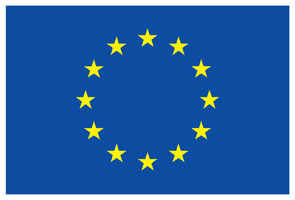Final conference
On December 09, 2020, the final conference of the project “Exploiting the potentialities of CSOs and LAs for development of holistic prevention of drug and alcohol abuse among girls and women in lagging regions of Russia” was held.
The event was organized at the Aglaya Courtyard Hotel in St. Petersburg and was also broadcast on the zoom platform. The conference were attended by the Deputy Director for Science of the National Narcology Scientific Center, a member of the International Narcotics Control Board, Galina Korchagina, more than 30 representatives of 15 NGOs, local authorities, regional ministries and departments, educational and social protection institutions from 13 regions of the Russian Federation. Partners from Sweden (“Women's Organizations Committee on Alcohol and Drug” and more than 20 participants from the regions joined the conference via video link.Aleska Simkic, Deputy Head of the EU Delegation to Russia, addressed the participants with a welcoming speech. Galina Korchagina presented the United Nations approaches to solving the problem of psychoactive substances use prevention. Leena Haracke, Executive Director of the Women's Organizations Committee on Alcoholism and Drugs, shared her vision of the prospects for a gender-responsive approach in drug and alcohol policy. Project Coordinator Andrey Nevsky conducted a comparative analysis of the role of civil society organizations in 10 regions of the Russian Federation in the implementation of gender-specific anti-alcohol and anti-drug policies. Evgeniya Fadeeva, head of the department for the organization of preventive care in narcology at the NSC of Narcology, presented the results of a preliminary analysis of the implemented local projects. Konstantin Vyshinsky, a leading researcher of the Epidemiology Department, shared "data on primary and general morbidity associated with use of alcohol, drugs and other psychoactive substances among women in the Russian Federation and certain regions." Conference participants from 10 regions
(Elena Petrova and Olga Vasilyeva (Novgorod Branch of the Russian Red Cross, Veliky Novgorod), Vitaly Garder (Chairman of the Khakass Republican Branch of the Russian Red Cross), Andrey Kotyashkin Igor Gurinenko (ANO RC "House on the Volga", Kostroma), Maria Nedobezhkina (Foundation for the Promotion of Activities in the Field of Prevention and Health of Citizens "House of Hope", Ivanovo), Svetlana Oorzhak (TPO "Association of Psychologists of Tuva"), Galina Knyazeva and Svetlana Savinova (RPA "Indigenous Women of the Komi Republic"), Svetlana Khabarkova (RPO "Women of Buryatia"), Valery Khudoyash (ARRO "Nadezhda Crisis Center", Arkhangelsk), Elena Yablochkina (POO "Independent Social Women's Center of the Pskov Region"), Valentina Polishchuk (Chairman of the Karelian Republican Branch of the Russian Red Cross) shared their views on the role of the project in changing the situation with the use of psychoactive substances among women in their regions. All speakers noted the increased interest and participation of local authorities in countering the spread of alcohol and drug use, improved interaction of civil society organizations with local authorities and government agencies, increased accessibility and efficiency of support to women with alcohol and drug problems, and the need to continue to implement in practice the methods and programs that are gender sensitive. Marina Orlova held a master class for the conference participants on preventive approaches based on the theory of generations "Primary prevention of psychoactive substances for generation Z"
As part of the conference, a round table on the problem of alcohol and drug use among girls was held based on the results of the implementation of the project on gender-specific prevention in St. Petersburg and similar projects in the regions. Within the framework of the discussion, the effectiveness of gender-specific prevention programs, increased interest of girls in participating in prevention activities, and an increase in the number of volunteers were noted.
The project is funded by the European Union


